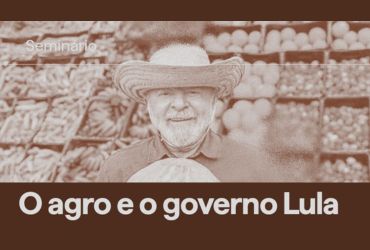O Núcleo Religiões no Mundo Contemporâneo, do Cebrap, realizará no dia 29/9, às 9h30, seminário que analisa os marcos jurídicos, políticos e humanitários nacionais e internacionais envolvendo os refugiados no mundo. O evento será transmitido nas redes sociais do Cebrap (YouTube, Facebook e LinkedIn).
Dividido em dois painéis, o evento enfoca a relação entre direitos humanos, o humanitarismo e as políticas nacionais em relação ao refúgio a partir das produções das identidades burocráticas, jurídicas, morais e sociais dos solicitantes ao refúgio.
Foram convidados pesquisadores que investigam esses temas para debater como marcos jurídicos universais se atualizam nas práticas humanitárias locais e nas políticas nacionais. Os participantes vão também analisar como funcionam as políticas e tratamentos da população refugiada em diferentes países.
Confira a programação completa:
Painel 1: Fricções, exclusão e agência nas categorias burocráticas e jurídicas do refúgio
Horário: 9h30 – 11h
Mediadora: Mirian Alves
Apresentação 1 – Natalia Corazza
Título: Refúgio como asilo da expulsão: Entre a prisão e a migração de pessoas estrangeiras no Estado de São Paulo
Sinopse: Inspirada pela proposta do seminário, esta exposição tem como objetivo analisar os acionamentos, bem como as disputas e negociações que envolvem a solicitação de refúgio feita por pessoas estrangeiras que cumpriram pena de prisão no Estado de São Paulo. Voltada para o imbróglio jurídico que marca peregrinações pelos corredores e prédios da Polícia Federal, Defensoria Pública da União e CONARE, o uso da categoria estrangeiras/os é, aqui, deliberado. A presente exposição decorre de trabalho etnográfico realizado, principalmente, com mulheres filipinas e sul-africanas “sobreviventes do cárcere”, ou “egressas do sistema prisional”, que vivem nas margens da (i)legalidade migratória no Brasil. Acusadas de terem cometido crimes “transnacionais”, foram elas expulsas do território nacional onde, em momento anterior, estavam obrigadas a ficar presas. O tempo da prisão, por meio dos vínculos de afeto produzidos ao longo da pena, produz perspectivas migratórias que são inviabilizadas pela expulsão. Nessa intricada trama que conecta prisão e migração, o dispositivo de refúgio aparece como um asilo frente a ameaça constante da expulsão.
Apresentação 2 – Stefania Spada, Unibo
Título: Categorial logic as an exclusionary device: the right to protection under the test of stereotypes and hetero-imposed narratives in Italy
Sinopse: The contribution aims to offer a critical reflection on the use of categories in the process of recognition of international protection, creating a dialogue between the European and Italian levels. Starting from a long-term ethnographic research – also documentary – on the phenomenon, an attempt will be made to understand the normative and political rationality of the management tools. The legal categories within the protection procedure, built on a group logic, present in fact an ambiguity that deserves to be problematised: if on the one hand they have become instruments of protection, on the other hand they have exasperated the labelling process, becoming exclusionary and sources of violations of fundamental rights. The process of categorical proliferation also fails to embrace the complexity that characterises contemporary migratory flows, and indeed becomes a dysfunctional device, caught up in the difficult integration between the universal-individual logic and the group logic. The aim of the communication will also be to problematise the dichotomy between “real and false” applicants for protection, analysing how categorical logic, together with stereotypes and prejudices, has been fragmented by policies as much as by common discourse, through a vicious circle of “mutual reinforcement”.
Apresentação 3 – Angela Facundo
Título: Categorias instáveis e experiências burocrático-existenciais
Sinopse: Baseada em pesquisas de cunho etnográfico sobre experiências de migração e refúgio no Brasil, sugiro que tais categorias envolvem processos complexos de gestão e controle das mobilidades que, por sua vez, produzem sujeitos específicos. Também defendo que a administração das pessoas e as tentativas de produção do vínculo desejado para elas com alguns territórios e comunidades locais reforça a produção permanente das fronteiras do estado e da nação. Apesar disso, longe de ser categorias fixas, elas estão o tempo todo em mudança e tensão. A definição do que seja um refugiado ou um migrante depende tanto da gramática política de uma época determinada, quanto das relações contextuais entre países de origem e de recepção, das negociações com agências humanitárias e da população que elas definem como alvo de seus programas, assim como de relações diplomáticas/econômicas que envolvem variados atores, dentre outros fatores.
Considero, então, que para o tipo de abordagem que proponho, é impossível falar da experiência das pessoas enquadradas nas categorias de migração e refúgio (e suas subcategorias: migração forçada; refúgio climático ou ambiental; migração humanitária etc.), sem falar também da fixação, das tentativas de sedentarização ou de expulsão, das restrições ao movimento e de uma evidente necessidade de governar os trânsitos. Assim, não me interessa necessariamente falar de um grupo de pessoas refugiadas, distinguidas por sua nacionalidade comum ou por seus traços coletivos diferenciados como uma unidade cultural especifica, mas abordar esses aspectos como elementos que informam as relações travadas com diversos tipos de atores sociais/agentes de estado que compõem os processos de classificação das mobilidades e que as transformam em experiências burocrático-existenciais.
Finalmente, pretendo apontar que tais classificações administrativas, que as pessoas têm que processar em meio a momentos vitais em que estão envolvidos grandes investimentos emocionais e de tempo, bem como expectativas de futuro, têm um grande impacto nas suas vidas. As categorias jurídicas se traduzem em diferenças concretas e significativas ao tratarem de questões importantes para a existência como procura de emprego, oportunidades educacionais, saúde, relacionamento com agentes e instituições de justiça, aquisição de bens, escolha de lugares para morar e socializar, decisões sobre relacionamentos erótico-afetivos, de parentesco ou aliança, bem como sobre novos deslocamentos e seus destinos.
Painel 2: Transformações e desdobramentos do humanitarismo em diferentes estados-nações
Horário: 11h30 – 13h
Mediadora: Roberta Altin
Apresentação 1 – Leonardo Schiocchet (ISA, Austria)
Título: Tutelage and humanitarian reason
Sinopse: This article examines engagements between state and refugees based in ethnographies I have conducted among Arab forced migrants since 2005. The concept of tutelage characterizes the power relations at play between refugees on one side and the national-humanitarian order of the world on the other. It lays bare relations of power constitutive of the social situations I analyse and has often hampered refugee agency. Yet, this concept has been only rarely applied to the anthropological understanding of refugees. This article argues for the usefulness of the term “tutelage” to characterise the reasoning of fundamental mechanisms embedded into refugee regimes.
Apresentação 2 – Giuliana Sanò
Título: Navigating im-mobility. Migrants’ paths in the post-reception period
Sinopse: Focusing on the geographic and biographical trajectories of migrants and asylum seekers who have left the reception system, this presentation aims to examine the notion of im-mobility from an existential, spatial, and temporal perspective. Drawing on the work of authors who have explored this notion to describe the condition shared by those who, while physically immobile, are nevertheless “in motion” (Carling and Schewel 2018; de Haas 2014; Jackson 2008, Nimführ and Sesay 2019), this contribution seeks to provide insight into the tension that occurs when physical immobilization and the mobilization of imaginaries (emotions, desires, and wills) are at play. With the help of some ethnographic vignettes set in southern Italy among migrants outside the reception system, the presentation will show how despite the existential precariousness produced by both Italian migration policies and inadequate measures provided by the reception system, individuals’ “capacity to aspire” (Appadurai, 2013) proves crucial to navigate im-mobility as well as to enact future-making processes.
Apresentação 3 – Osvaldo Costantini
Título: The humanitarian between depoliticization and capitalist accumulation
Sinopse: The humanitarian has undoubtedly been the dominant paradigm in the approach to migrants / asylum seekers / refugees in Europe in the last two decades. Anthropology has shown the genealogy of the humanitarian, its contradictions and, in part, the unfolding of forms of surveillance and discipline as the dark side of this government device. After the release of the Italian translation of Fassin’s book “humanitarian reason”, Miguel Mellino, in a very acute review, underlined the importance of the text, showing, at the same time, its limit: that of not being able to see how dialectic between compassion and repression, between humanitarianism and securitarianism, should itself be framed within the logic of capitalist valorisation. Indeed, how the humanitarian device itself was a strategy of accumulation, operating primarily through the expropriation of the same subjectivities. The present work intends to start from this particular point of the debate, to fully explore the connection point between a rhetoric that focuses on “the victim to be saved” and a model that intends to “extract” value, on the basis of a beautiful metaphor by Saskia Sassen, from any social relationship, from desires and tragedies. The ethnographic analysis will focus in particular on the role played by the subtraction of any form of self-determination from subjects, swinging from a victimization that denies it to them and a repression that represses when it instead tries to manifest itself. In this paper I want to analyze the creation of illegality and temporariness in Italy, with a special focus on the consequences of the humanitarian approach both in making the “residence permits” precarious and in “disciplinating” asylum seekers and refugees to be a meek labor force.






